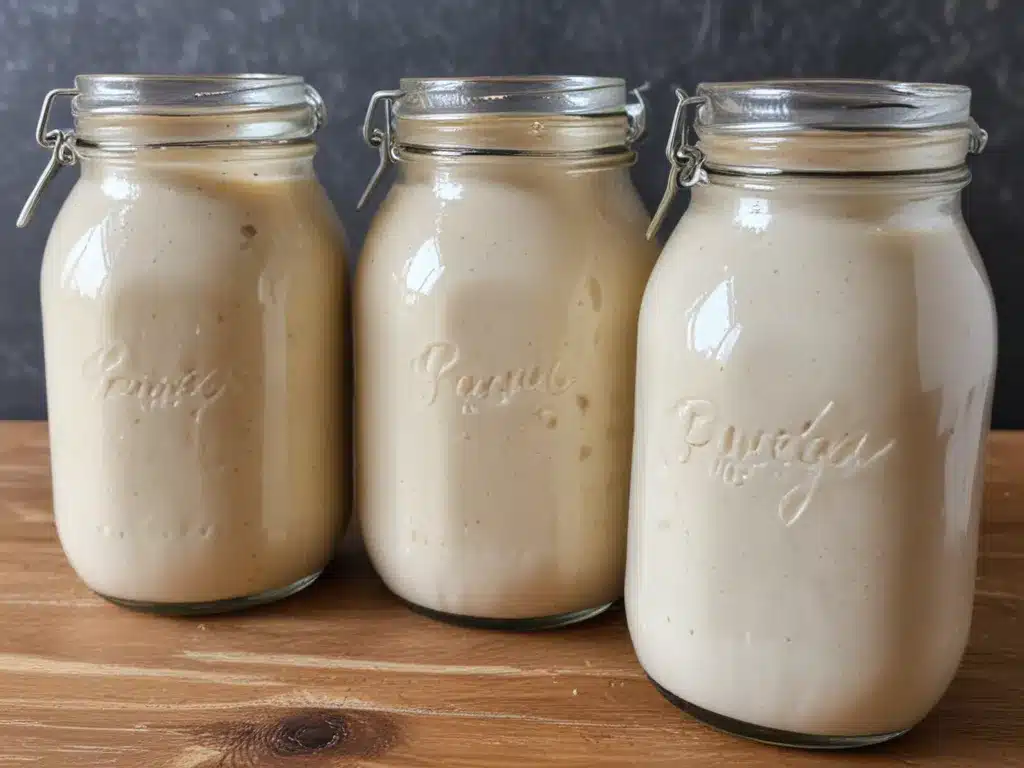
Creating a sourdough starter from scratch requires patience but results in a symbiotic culture full of wild yeast and bacteria that can be maintained indefinitely with proper care. This living exosystem provides numerous health benefits while producing delectable breads. Let’s explore how to grow our own starter and understand its rich fermentation process.
The Symbiotic Relationship between Yeast and Lactobacillus
A sourdough starter relies on the symbiotic relationship between yeast and lactobacillus bacteria. Yeasts primarily consume sugar to reproduce, releasing carbon dioxide gas and alcohol as byproducts. The alcohol creates an ideal low-oxygen environment for lactobacillus to thrive. Lactobacillus ferments sugar into lactic acid, creating the signature sour flavor while also producing hydrogen peroxide to inhibit unwanted molds and bacteria. Together this community establishes a self-regulating pH balance, with lactobacillus lowering the acidity for yeast to flourish. Their combined efforts impart incredible health benefits to bread.
| Microbe | Function | Product |
|-:|-:|-:|
| Yeast | Sugar Consumption | Carbon Dioxide, Alcohol |
| Lactobacillus | Sugar Fermentation | Lactic Acid, Hydrogen Peroxide |
Starting your Sourdough Starter from Scratch
To start a sourdough starter from scratch, combine equal parts flour and water in a clean glass jar. Rye or whole wheat flour works best to cultivate a diverse microbiome. Use bottled or boiled and cooled water. Stir to form a shaggy wet dough. Leaving the mouth uncovered, set the jar in a warm spot away from direct sunlight and allow it to ferment for 24 hours.
At this stage natural yeasts and lactobacillus in the flour will begin to consume sugars and multiply. The mixture will become bubbly as carbon dioxide is produced. After 24 hours, discard half of the starter and “feed” it by adding equal parts fresh flour and water. Stir to incorporate and allow it to ferment for another 24 hours.
By continuing to discard half and feed equal parts flour and water daily, the wild yeast and bacteria population rapidly multiplies. Within 5-7 days there should be noticeable activity with rising and collapsing occurring as feeding times. At this point the starter can be used to make bread or maintained by feeding just once every 1-2 days in the refrigerator.
Maintaining your Mature Sourdough Starter
Once established, a sourdough starter needs ongoing care to stay active. When refrigerated, feed the starter by discarding all but 100g, then stirring in 100g each of flour and water. Going forward, clean the jar weekly and feed the starter with equal parts flour and water 1-2 times per week based on how bubbly it becomes.
For a more detailed guide on maintaining a starter, check out the instructions on the King Arthur Baking website. Their extensive knowledge on fermentation and resources for sourdough bread baking are invaluable. With regular feedings the beneficial bacteria and yeast culture can theoretically live indefinitely if cared for properly.
The Nutritional Power of Wild Yeast Fermentation
Cultivating your own sourdough starter and baking with it provides incredible nutritional benefits. Wild yeast bread boasts over 30x more beneficial probiotic bacteria than commercial breads due to the optimal environment lactobacillus thrives in. These help improve digestive health and strengthen the immune system.
Additionally, sourdough breaks down hard-to-digest components like wheat gluten, making bread proteins more bioavailable. Spontaneous fermentations also produces vitamins B1, B2, B3, minerals and gut-friendly short-chain fatty acids. With its low glycemic load, sourdough bread serves as an easy healthy staple when homemade from nutrient-rich whole grains. Maintaining a culture enables access to these nourishing properties.



















